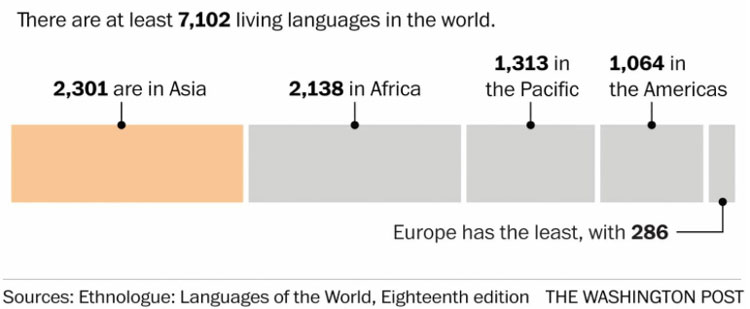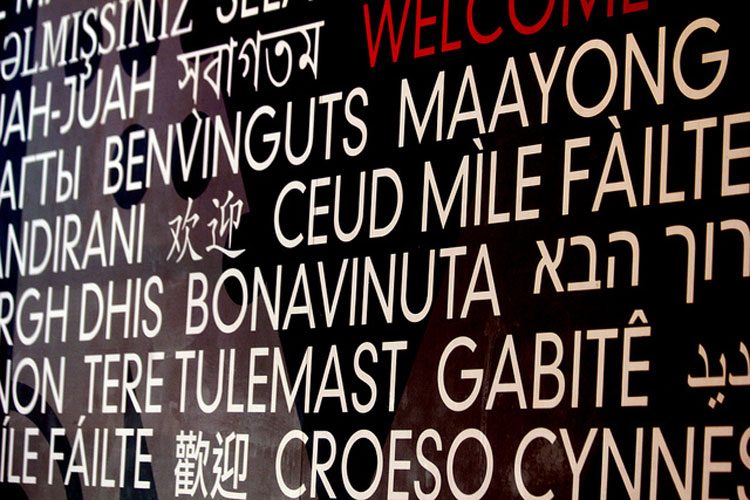It’s a new year, and that means people all over the world are making and breaking New Year’s resolutions. The dawn of a new year is a chance to clear our minds and start on a clean slate. It’s time to reflect on what’s truly important in our lives and what will lead our world toward a brighter, more successful future.
Fads come and go every year, but a few concepts remain important forever. Language is something we use every second of every day, and it will never leave us. It’s always evolving. It’s always expanding, breaking down barriers. Its varieties are more helpful to society now than ever before.
Perhaps, in addition to vowing to exercise more in 2018 and beyond, we should try to understand and appreciate the various languages spoken in our communities and our world. We, as a global society, should work toward becoming multilingual.
One concept, endless benefits
Multilingualism is a tough word to define. It can be used to describe people or places on various levels — personal, community-wide and even worldwide.
Samantha Godden-Chmielowicz, a member of the Steering Committee for the Multilingual Chicago initiative, said the initiative, in addition to pushing for increased access to language studies, holds the idea that “recognizing language as a skill and a talent, as we would other skills and talents, empowers those that come from different backgrounds.”
“I think your empathy increases when you know another language because you understand the struggle of having learned that language,” Godden-Chmielowicz added. She also noted that learning about and understanding other cultures, in addition to languages, is an important aspect of multilingualism.
It’s time we view language diversity as the invaluable asset to society it is.
A crucial necessity in 2018
Globalization has affected virtually every entity in every corner of the world as of now. No matter one’s profession, there is a high chance one will have to use language skills in his or her career today.
Businesses have clients on several continents. Journalists write news articles for the whole world to read. Those who work in the service industry often preform their services for people from other countries.
With globalization, naturally, comes the need for multilingualism. In order to work successfully with those from other countries, we must understand and recognize their languages and cultures.
As Godden-Chmielowicz puts it, “The more languages you speak, the more people you can help.”
Further, governments of various nations interact with one another on a daily basis. The U.S. government has listed “critical languages,” such as Arabic, Russian and Mandarin, which are believed to be critical to the nation’s “national security and economic prosperity.” The government even offers scholarships to students who study these languages on overseas programs.

The world’s languages, in 7 maps and charts | via www.washingtonpost.com
No previous language experience? No problem.
Starting second-language acquisition young is ideal, as some aspects of language can be acquired more easily in childhood. But professionals of all ages and career areas should not shy away from learning other languages.
Start small. Learn a language that’s similar to your own. If you speak Spanish, try learning a bit of Portuguese. If English is your native language, understanding the basics of Afrikaans won’t be too difficult.
You have access to every language in the world at your fingertips right now. Smartphone apps like Duolingo and Tandem and websites like Busuu and Memrise offer language lessons and tools at little or no cost.
And, if possible, study or work in another country. Or simply travel. Remember that part of multilingualism is understanding other cultures, so immersing yourself in one while learning a new language will be an indispensable experience.
Multilingualism, more than anything, is our future. Technology will keep replacing itself. Numbers will eventually be able to calculate themselves without any help from humans. But we will always need to communicate with other people, and, ideally, language barriers should not stop us from being able to do so.

